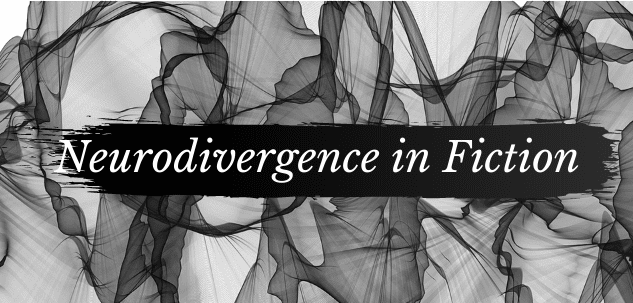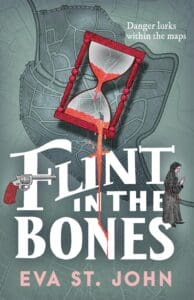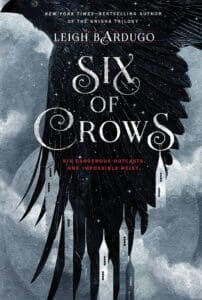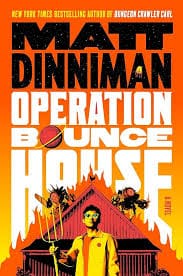
Hello all, and welcome to this week’s article for FanFiAddict’s series on Neurodivergence in Fiction. I cannot understate how appreciative I am for the overwhelming amount of support and enthusiasm I have seen for this series of mine; thank you! For the next several months we will be bringing you a guest post every Wednesday from a neurodivergent author. This will hopefully highlight some of the challenges that come with writing for a largely neurotypical audience, while also giving valuable insight to the craft itself and providing a window into the neurodivergent experience — at least through the lens of fiction.
Today, we are joined by Amara Lynn, who raises the question of who exactly they’re writing for.
As always, if you need to catch up on any articles, check out the landing page for the series here.
And, without further ado, here’s the article.
Last year for NaNoWriMo, I went all out and wrote my first full novel (something I’d never achieved on a first draft before). It’s the current book of my heart (yes, you can have more than one in your life), and probably the most “me” thing to be ever written.
Now, I don’t know what to do with it.
The thing is, even though I think my story is great and other people have replied to me on Twitter before with how much they can’t wait to read it, the publishing industry has convinced me it doesn’t want my book.
Why?
Because it’s weird. Because it’s queer, with an all genderqueer cast. Most of all, because I broke all the writing “rules”. I wrote the book I wanted to write. Because of my neurodivergence, my mind often processes things differently.
Four years ago, I didn’t even know how to write a book. I just wrote things and had fun with no regard to anything else. But then I finished something, and submitted it to a collection call with a small press, and I had a rude awakening.
Suddenly, I was in this whole world of show versus tell, don’t do this, don’t do that, and I was rewriting my novella into something else entirely just to make it all make sense. While what I ended up with is undoubtedly better than the original, it was a horrible experience that left me with anxiety.
I used to think that everyone struggled to fit in, that everyone was surely faking concern or sincerity. But the more I interacted with other neurodivergent people, the more apparent it became to me that most people don’t have to think so hard about what others think, or pretend, or hold in their weird random thoughts. Just like I had to learn the “right way” to write a book, I’ve had to learn the right way to interact with other people.
Since neurodivergent people are in the minority, the majority of readers a publisher will be marketing to are neurotypical. In other words, they aren’t going to want to throw money into something they believe won’t sell. So the answer is, “your character can still be X (neurodivergent, queer, disabled, etc)”, but “you have to make it have mass market appeal as well” or “You have to make it educate people on issues.”
Even though I didn’t write my book primarily for them. I wrote my book for everyone who desperately wants to feel at home, to have a place they belong and feel comfortable. I wrote my book because of everyone who said I can’t.
And it hasn’t always been this way. I often read classics, being a fan of retellings, to inspire me. Take Alice in Wonderland for example. Lewis Caroll invented so, so many gibberish words (and you can bet I did just that in my retelling), and some of them even made their way into normal English. Chortle (laugh in a breathy, gleeful way; chuckle) is one example. Furthermore, there are several more examples of what would be considered bad writing by today’s standards, such as telling “she was angry” or exposition. And Lewis Caroll isn’t the only one. I recently read The Little Mermaid as well, and was surprised by how short it was, on top of more of the same exposition. In fact, exposition is more common in fairy tales, and that’s what so many people grew up on, but when you pick up a new book all of a sudden no one writes like that anymore. People grow up, forget these stories, and learn rules of modern storytelling.
Add that on top of so many other things neurotypical people seem to know, and all of a sudden, writing a book seems like a much bigger feat for someone like me. This became more clear to me recently when I had the opportunity to be paired up in a critique partner match. Both of the potential people failed to connect with my first chapter. One wanted to make changes I’d liken to line edits, calling out my telling statements that were intentional for impact, while the other failed to connect altogether. As far as I know, both individuals were neurotypical. After this, I reached out to some friends who were privy to my story during drafting, and none of them raised the same issues.
This is when I started to be concerned. Who did I write this story for? How many people won’t understand this story, written for queer and neurodiverse people, and what obstacles will that cause for me? When you’ve poured so much of yourself into a story, given so much of your soul, you don’t want to change it for anyone. You want everything for it, while also preserving what the story is at its heart.
As I pondered these differing opinions from neurotypical people and queer people, a friend of mine from Twitter expressed frustrations with the publishing industry around his former agent and also regulary tweets about navigating the publishing industry with ADHD. Something he said recently involved my fears: that editors will want to edit out inside jokes and other voice quirks. Yet those are what I think makes my book truly unique.
Even though I’m currently a self published indie author, I’m also a dreamer with big dreams some days. I would love for one of my books to get more attention, or to get more sales. The biggest struggle for being an indie author is you have to do your own marketing, and that in itself is a whole job. Put that on top of working a full time job as well, and my chronic illness, and there just isn’t enough time in the day to do all that I would need to do. Marketing is its own beast that I’m constantly trying to understand, and more often than not, failing at.
It’s hard not to feel left out when you’re an indie author on social media and people keep talking about the same few bestsellers, or the lack of rep in the industry, and us indies are over here screaming “We’re right here!” I wish people would treat indie books with the same amount of hype as trad pub books. There are some great ones out there that deserve it.
I would love to have the help of an agent or publishing house, but not at the cost of getting a bad editor who tries to make my book something it’s not. And I don’t plan on writing anything less quirky, whimsical, or weird, either. I don’t want to have to change myself to sell books. Sometimes I just want to throw my books out in the world and if one person likes them, great. But sometimes I’m tired of doing it all myself, and I shouldn’t have to just for fear of rejection.
One thing I’m fortunate enough to have is a freelance editor who is also queer, and understands when something one of my characters does is a neurodivergent thing. It even helped me with my most recent book address narrative changes to differentiate between my characters that aren’t neurodivergent. In trad pub, my biggest fear is that I wouldn’t get so lucky. That I’d have another horrible experience that overwhelms me and induces anxiety attacks. And no editor or critique partner should ever make you feel that way.
Some days I’m so grateful to have creative control and freedom. Some days I want more, because at heart I’m a dreamer.
Maybe the industry will change if we talk about these things more, in time. Maybe one day I’ll get lucky, too. As for me in the present, all I can keep doing for now is writing my heart out, revising my work, and staring off into space as I contemplate the answers to these questions myself.
About the Author

Amara Lynn has always been a quiet daydreamer. Coming up with characters and worlds since childhood, Amara eventually found an outlet in writing. Amara loves anything to do with pirates, villains and superheroes, and angels and demons.
Amara is addicted to music and gets the most inspiration from moving songs and lyrics. When not writing, Amara usually reads, listens to podcasts, watches anime, plays a video game here and there (but mostly collects them), and takes way too many cat pictures.
Amara is non-binary/enby and queer and uses they/them pronouns.
Website: www.amarajlynn.com
Twitter: https://twitter.com/AmaraJLynn
Books: amarajlynn.com/books




Leave a Reply